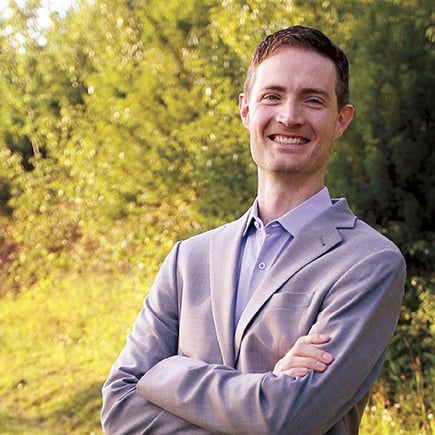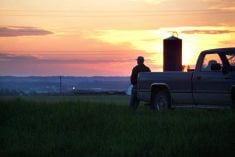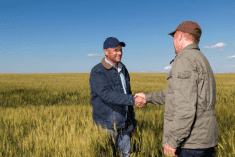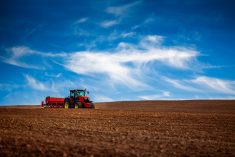We’re a long way from hippies in ponchos and bare feet. Urban agriculture has graduated. Today, it’s all about serious professionals who know that growing food is a business before anything else.
A way of life? Only if it turns a profit.
And there’s something else that’s curious too, especially for operations designed as vertical farms. Often, the people behind them have no agricultural background. To this new breed, it’s all business.
Read Also
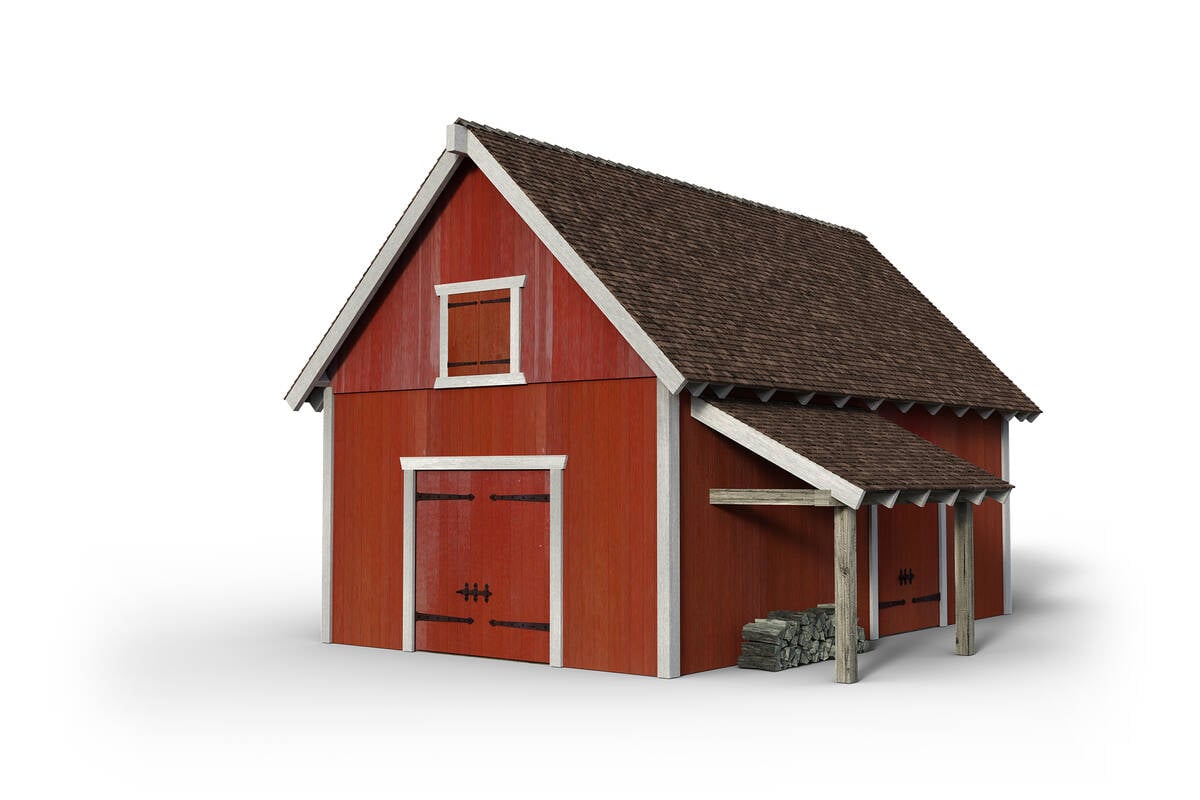
When hackers hit the barn
As Canadian farmers embrace automation, cybersecurity is the new front line. Here’s how to protect your on-farm data from digital threats.
Commodity-based agriculture outside of cities remains overwhelmingly the pride of generational farmers. Now, though, it isn’t the only game on tap, and a growing number of bright people are rewriting the narrative. They’re proving that green thumbs come in varying shapes, sizes and postal codes — even some that don’t have to contend with the limitations facing traditional farmers, like expensive land and trouble finding workforce in the countryside.
Among these bright young things is the exuberant, 31-year-old, Paul Shumlich, the founder and CEO of Calgary’s Deepwater Farms.
Shumlich, it has to be admitted, doesn’t look much like he belongs on a farm. Nor do his unlaced Nike trainers — not exactly the first choice in tractor wear.
But then, he and business partner Reid Henuset know who they are without that.
“Yes, we are definitely farmers, there’s no ifs, ands or buts about it,” says a resolute Shumlich. “But we are entrepreneurs that want to do more.”
Officially formed in 2015 and operating at a commercial scale since 2018, their farm is a 10,000-square-foot warehouse in the southeast part of the city producing — like clockwork — a weekly 1,500 pounds of leafy greens (baby kale, baby arugula, watercress, Swiss chard and beet leaves) for grocery stores and restaurants in an environment of highly controlled light, humidity, water usage and a precise 14-day growing period from seed to salad.

It all started nearby when Shumlich was a student at Mount Royal University, first studying business and then innovation and entrepreneurship. As a young man in his 20s he got curious about food; he wondered who grew what he ate, and, more importantly, how?
“I saw the opportunity when I was walking through the grocery store and I noticed that all the produce was coming from Mexico and California in the middle of winter. It was organic, but the quality just wasn’t there.
“I realized — if somebody could grow it year-round, do it locally, it would be a huge opportunity.”
That was in 2013, and Shumlich figured that what he was lacking in agrarian knowledge, he could backfill with a combination of the bedrock business principles he was learning as a Mount Royal University student and what he was picking up as a small business owner himself with a window washing company he created to pay for his post-secondary education.
Business and Shumlich were about as natural a pairing as salt and pepper and had been from his earliest days with grass cutting and lemonade stands. Now, he set to researching urban agriculture with the help of Google and YouTube to look into indoor aquaponics and hydroponics. He worked tirelessly to built prototypes of the farm he eventually created: a symbiotic fish farm where sea bass would be raised, their manure later collected and recycled as fertilizer for leafy greens in an aquaponic setting, meaning the roots were directly in water, not soil.
Above all else, though, Shumlich knew he needed a market for his product. So, he did the most logical thing he could think of. He went around Calgary, banging on the back doors of popular restaurants, asking chefs about food preferences and what they thought of locally grown produce. If the response was positive, Shumlich would whip out fresh samples of various leafy greens he grew at his university’s community garden for a live taste test.

Those beta rigs were built in his backyard and a garage as he slowly tinkered and perfected the system that would be used in commercial production.
This was the groundwork for what the business is today: a vertical farm that, at its core, is as much committed to being socially conscious as it is about the bottom line. Shumlich loves Tom Shoes’ 1-for-1 model and sees no reason why such an ideology of treating people as more than a dollar sign of various sizes can’t be applied to food.
“Is there a way that we can build a business that can feed a lot of people for less and give them a better product and be truly disruptive?” he asks. “I really like disruptors that are pushing the boundaries and breaking rules but ultimately improving lives and making things more affordable.
“We can grow a better product at a better price than what’s coming in,” Shumlich decided. “I thought we could completely disrupt an industry and, you know, bring people’s cost of food down and give them something better. Absolutely, that’s my belief.”
Dynamic duo
He needed a partner, though. Shumlich began to realize the capital costs would do him in unless he expanded ownership offerings to unlock more money. Through a mutual friend, he was introduced to Reid Henuset, another non-farmer, but a “capital E” entrepreneur from a long family line of small business owners. Henuset had just sold off a successful oilfield services business in 2017 and was looking for a new challenge.
Shumlich was completely undeterred by Henuset’s lack of ag acumen. In fact, it was just the opposite.
“A lot of the stuff from oil and gas translated … figuring it out, just do the hard work. You know, solve the problems that are right in front of you, not the ones you think exist,” says Shumlich.
The concept of a vertical farm squared with Henuset, and he and Shumlich left their first meeting with a handshake deal to work together. Henuset could see Deepwater had serious potential in a market segment that was, at the time, virtually untapped.
“I just saw the opportunity as something different that Calgary needed and I was looking for something to do,” says Henuset. “So, I thought, well, let’s do it. I thought it was a great idea so I jumped on board.”

Despite starting from scratch in many respects, the two felt nothing but optimism.
“It was an industry that had yet to be established,” says Shumlich. “There’s no leaders and it’s not every day an industry begins, right? To me, it was like the golden opportunity. And I’m like, ‘Yeah, it’s time to put it all in on this one.’”
Once up and running, the system worked like a charm for two years and the farm supplied restaurants, a local fish market and select grocery stores.
However, CanadaGAP, a national food safety program for companies within the fruit and vegetable space, changed its regulations around chemical hazards and water-based contaminants for aquaponic farms in April 2020, which forced the company to separate into two farms running parallel to one another.
That led to more change. “As we scaled up our production for the fish, our system became more and more inefficient because it wasn’t designed and engineered to do what we were doing with it,” says Shumlich. “We were actually kind of burning cash throughout that operation.”
Shumlich looked at the financials separately for fish and plants. The plants looked great but the fish were horrible based on their current operation, and that led them to realizing they’d need to find how to get way more efficient.
What becoming “way more efficient” led to, though, was a difficult decision to get rid of the fish production entirely in October 2021. From that day onwards, it became all about the veggies.
There was a less on learn. “It was death by our own success on the fish,” says Shumlich. “We started growing less than 500 pounds a week and by the end we’re growing 1,000 pounds a week. That resulted in us Frankensteining a system to keep up.”
Pandemic pressures curbed their expansion plans too because of uncertainties in the real estate market and the global supply chain for procuring the equipment they would need.
However, that was just half the pandemic picture. From the produce perspective, things couldn’t have been much rosier.

When COVID-19 set in by mid-March 2020, Calgary’s restaurants quite literally shut down overnight, including the 100-plus that were now buying from Deepwater. In just 24 hours, Deepwater’s entire business model of 90 per cent restaurant to 10 per cent grocery sales became 100 to 0 in favour of grocery stores.
Borders had closed, panic buying set in and fresh food simply flew off store shelves. Deepwater was one of the only local farms that could produce at any sort of scale. As the phone kept ringing, it was clear the business was entering uncharted territory and Shumlich reacted as any farmer might when multiple national grocery chains started trying to secure product.
“Oh f***,” he said. Then, quickly, “Buy clamshells.”
Inventories of the clamshell packaging they needed to supply grocery stores were dwindling and the two men worked as fast as they could to secure as many clamshells, seeds, media and other inputs as they could. It paid off. They secured 12 months’ supply in a matter of days.
“People couldn’t get in their fresh produce and we were literally the only ones on shelves at all the grocery stores we were in,” says Shumlich. “So yeah, it was kind of a crazy time for us. It was huge growth but huge growing pains.”
For instance, they had been distributing to a few food service companies which delivered their products. Now they had to deliver themselves to countless grocery stores across the city. They had to buy a truck, ramp up packaging production — and figure out how to package more efficiently — and hire more staff.
“Our margin actually shrank, but our business grew,” says Shumlich.
Part of that margin shrink was shifting from primarily restaurants wholesale packaging—two 10-cent plastic bags and a box for restaurants—to retail packaging—10 clamshells per box at 60 cents apiece complete with product and best-before stickers.
Looking ahead
Today, after moving at the speed of business for more than two straight years, things have levelled off for the company. They are in a steady phase of delivering consistently to more than 50 grocery stores and 25-plus restaurants.
Deepwater’s staff has grown to 10, including six horticultural technicians, a marketing/sales manager, operations manager, part-time bookkeeper, Shumlich and Henuset, and the company is planning its next growth phase.
There’s more good news too. Thanks to their recent sweat equity, Deepwater is first choice for throngs of Calgary consumers who are consistently buying their products.
“It’s not easy to go from creating a brand to becoming recognized in a city of 1.3 million, so we feel we probably have that upper hand because we have been around; people know who we are,” says Henuset.
The idea of competition doesn’t threaten them, either. In fact, they welcome it at this point, still ideologically driven that Deepwater is about more than just about turning their greens into green.
“Any competition is good,” says Henuset. “Ultimately, whether there’s three or four local suppliers, I’d rather that than six from California.
“Our industry is really just getting started with what we can do,” says Shumlich. “The back end of this industry is just catching up in terms of creating genetics and different types of systems that will optimize growth and enhance product types and qualities that can be grown indoors and in a greenhouse year-round in Western Canada and in Canada. At this stage what’s working is displacing imports and (having a) high value crop. That’s it, plain and simple.”
With no publicly announced deadline for when they want to be at their next goal, the pair have earned the time to re-evaluate and, as the saying goes, to work on the business, not strictly in the business.
Part of that is acting like it’s 2018 all over again, back at the starting line. That year, they were just getting their toes inside the door, eager to build brand preference. Then came the pandemic, with many consumers having little to no choice but to buy Deepwater products. They liked what they were buying, but there is still brand building to do to keep them loyal.
“We need to get into the stores,” says Shumlich. “We’re rolling out sampling booths.”
They’re also focused on learning the lessons of the past two years.
“A big one for us was just pushing through,” says Shumlich. “Clearing out the uncertainty has been a huge win and allows us to operate with confidence.”
But business never stands still. For Deepwater, it will likely involve renewable energy sources, compostable packaging and automation and, ultimately, a net-zero or even net-negative carbon emissions goal.
There are other opportunities too. Over the last two years as Shumlich and Henuset learned more about local food systems, their knowledge proved magnetic. Deepwater now acts as a third-party distributor for other farm operations, and they see this as an area for growth.
At its most basic level, however, the success at Deepwater is no coincidence. From their perspective, anyone who thinks they aren’t savvy, modern farmers needs to think again.
“We started from the ground up, we built everything with our hands, we fix everything with our hands, but I think we’ve realized that you can’t be a farm without a solid business — that almost takes precedence,” says Shumlich.
“Once you’ve got your farm running, you can’t settle, you’ve always got to push. Innovation is a big piece of it, too, because we realize that this is a rapidly growing and changing industry and it takes following technology curves where things are always getting better every day at a faster rate.
“We need to stay up with that and we need to be leaders,” Shumlich says. “It’s a crossroads of innovation, business and farming.”
Wow, that’s big!
It isn’t just Deepwater that is making a splash in Canada’s fourth-largest city. Already the city is becoming a food hub with a dozen commercial vertical farms of various size, scale and product lines and entrepreneurs like AgriPlay’s Dan Houston.

Calgary Economic Development is playing a vital role, along with the city, to lure prospective businesses. Brady Stadnicki, CED’s business development manager for agriculture, fields a call or more every month from investors looking to seriously put down roots.
Part of the reason is the city has made a point of enticing entrepreneurs with minimal red tape. Currently, would-be businesses have their licence fees waived, and once operational there are no property taxes paid on the entirety of a farm’s production area.
The city also provides free water service consultations as well as pre-application advice which will be reviewed and commented on at no charge before a formal application is submitted.
“We are wanting to put together a business experience and concierge service with pre-application meetings with companies,” says Stadnicki. “Just having a bit of a turn-key solution for these types of operations … it’s how we’re continuing to make our market more attractive.”
And it’s not just in an industrial park, either. Calgary’s downtown is becoming quite an attractive location. Currently, the city’s core has more than 13 million square feet of vacant space for rent, much of it due to upheaval in the energy sector via mergers, selloffs and consolidation.
One company, for instance, AgriPlay, just took up residence at the base of the Calgary Tower. By October, 65,000 square feet — one-third of the company’s planned downtown farm — will be operational and producing yet-to-be decided crops, although in its farming system, AgriPlay has successfully grown many fruits and vegetables including strawberries, cucumbers, kale, chives, honeydew and watermelon and cucamelon.
Company founder Houston says the first phase of the farm will showcase how the system can be installed without damage to an existing building.
“This is to show them how we handle moisture, and dispel myths about moisture,” says Houston.

The company is currently building out what it calls a fortress plan for Alberta with a goal of four million square feet of vertical farms, primarily situated in Calgary and Edmonton.
From his perspective, Houston sees indoor farming as the way of the future. No stress, no headaches and, most important, virtually no variability.
“You could be the greatest farmer on the planet, you could be psychically connected to the crops that you are growing and still, 80 per cent of what makes or breaks your ability to make money and to provide food is completely out of your control, and that’s the environment,” says Houston. “The only way to get around that is to go indoors, and that’s vertical farming.”

